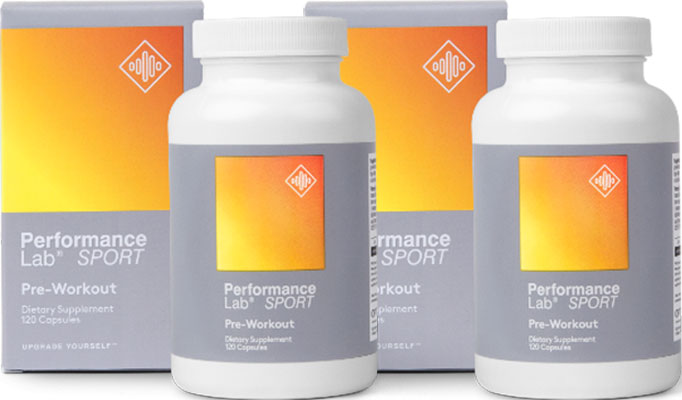Often, when people start following an exercise program, they report that their sleep quality has improved “After last night’s workout, I slept like a baby” they mention (smugly). But what if you’ve been experiencing the opposite? Instead of sleeping through the night, you are finding yourself wide awake at 3am. What could be causing this?
Often, it could be as simple as the choice of supplement you have taken, or the time that you are consuming it. In this article we will be looking at whether pre-workouts cause insomnia or disrupt sleep. And how to avoid exercise-related sleep issues.
What is Insomnia?
Before looking at whether pre-workout usage causes insomnia or not, it is important to examine what insomnia is exactly. Insomnia is basically a sleep disorder where you struggle to fall asleep during the night. There are many causes of insomnia; mental disorders, medical conditions, hormones (for example during menstruation), breathing disorders, shift work, jet lag, and even physical exercise!
Yes, that’s right. Exercise itself can actually lead to poor sleep. Many athletes have reported increased sleep latency – this is where it takes longer to fall asleep after going to bed.
Insomnia can also be caused by psychoactive drugs, some of which can be found in pre-workouts. Psychoactive drugs sound quite scary, but this can include things like caffeine. Other drugs that can cause insomnia include amphetamines.
What you should take away from this is that there are many potential causes for your insomnia, and it is important that you find out why exactly it has affected you. However, the point of this article is to look at whether your pre-workout could be responsible for your insomnia, so let’s concentrate on that.
What is a pre-workout and why would you take one?
Technically, any supplement taken before a workout could be classed as a pre-workout. If you drink a protein shake 30 minutes before you hit the gym, then that protein shake is a pre-workout. But when most people talk about pre-workouts, they are talking about specific products that are sold as pre-workouts.
There are numerous benefits to taking a pre-workout. They can increase your energy, banish fatigue, and lower your perceived exertion (how difficult you think/feel an exercise is to perform). Pre-workouts may also help you to focus better, they may improve your mood and your motivation; many pre-workouts also include elements of nootropics and describe themselves as cognitive enhancers.
Taking the right pre-workout can help you lift heavier weights, or lift the same weights for more reps. They can also help you outside the gym, allowing you to perform at a higher intensity while playing sport.
Pre-workouts are often used by people who train early in the morning and are suffering from fatigue. Ingredients such as caffeine can help to banish fatigue, turning a tired, lethargic performance into a high-energy workout. This can also work if taken in the evening after a long, hard day of work.
Common ingredients in stim pre-workouts
The ingredients of a pre-workout vary a lot between different brands. But one way to separate products is by splitting them into stim and non-stim. Stim stands for stimulatory, and it includes ingredients that (you guessed it) stimulate you. Or more specifically, stimulate your central nervous system. Here is a list of ingredients commonly found in a stim pre-workout:
- Caffeine: Without a doubt, the most common stim pre-workout ingredient is caffeine. This is because it is so effective. Caffeine works in several ways; it stimulates the central nervous system, causes the body to release adrenaline, and banishes fatigue temporarily. It can increase your metabolism and help you to burn more calories during a workout. It also increases fat oxidation, which can help you burn more fat during a workout.
- DMAA: 1,3-Dimethylamylamine is another stimulant, that is similar in structure to adrenaline. It appears to massively increase blood pressure and may also help you to train harder and for longer. Particularly when combined with caffeine (in a pre-workout for example).
- Maca Root: A herbal supplement ingredient from Peru, Maca root is linked to many potential benefits. It appears to be able to improve aerobic performance, and studies on rats indicate that it may help boost cognition (brain power).
- Synephrine: A molecule that is similar to DMAA and ephedrine. Synephrine (the active ingredient in Bitter Orange) is another common stim pre-workout ingredient. It may help burn fat, boost your metabolism, and works well with caffeine. We would be remiss, however, if we didn’t point out potential safety issues with Bitter Orange. Synephrine stimulates the heart, causing WebMD to brand it ‘possibly unsafe’ when used for weight loss.
There are many other stim ingredients out there, such as theacrine, Yerba mate, panax ginseng, and niacin. But the main one, and only one worth talking about, is caffeine.
Common ingredients in non-stim pre-workouts
Non-stim pre-workouts obviously cannot contain caffeine, so they must be creative in their ingredients list. Here are several common ingredients in non-stim pre-workouts:
- Creatine: You’ll find creatine in both stim and non-stim pre-workouts, because it is so useful. Creatine has been shown to help increase physical performance in the gym or sports field, and boost brain power too. Creatine can increase strength, power, and muscle mass. Creatine is also non-stimulatory but can still banish fatigue and increase energy.
- BCAAs: Branched-Chain Amino Acids are often added to non-stim pre-workouts for the wrong reasons. People believe that BCAAs are great at increasing muscle protein synthesis, but this is only the case if your dietary protein is low. BCAAs are, however, excellent at reducing fatigue without being stimulatory. Really helping people to train while tired, or to get those extra couple of reps out of the set.
- Beta-Alanine: A non-stimulatory ingredient that can increase muscular endurance, reduce fatigue, increase power, and may also have a small effect on fat loss. You can see why beta-alanine is a popular non-stim pre-workout ingredient.
Again, there are many other non-stim pre-workout ingredients, but these are three of the most commonly used ones.
Can pre-workouts cause insomnia?
As we mentioned at the beginning, there are many causes of insomnia. Even the act of exercising during the day may be a factor when it comes to bad sleep. However, it is well known that increased caffeine intake can cause insomnia. Adding a pre-workout to a diet where you are already consuming caffeine can lead to a large increase in daily caffeine intake – which can affect sleep. But even if you aren’t taking much caffeine, when you consume it can also play a large part in sleep quality.
Caffeine can take up to six hours to clear your system. So even a low dosage of caffeine (and very few pre-workouts use low doses) can stay in your system and make sleep more difficult for six hours after you have taken it.
If you have a training session at 8pm and you take your pre-workout at 7:30pm, then that caffeine will still be in your system at 1:30am. Now, the effects of caffeine are unique to the individual. Somebody who has a high enough caffeine tolerance could drink a black coffee before bed and still feel nothing. While somebody who has never consumed caffeine before could still be jittery eight hours later!
But as a rule, if you have an evening session, the caffeine in your pre-workout could very well cause disrupted sleep or insomnia. A non-stim pre-workout is therefore advised. We recommend our favorite pre-workout, Performance Lab SPORT Pre-Workout. Read on for more details.
How to avoid insomnia from your pre-workout
One of the things you could consider would be training earlier in the day, this would help remove the issue of caffeine staying in your system. However, you would still be massively increasing your daily caffeine intake. A better option might be to take a non-stim pre-workout. Performance Lab SPORT Pre-Workout is a good example of a non-stim pre-workout that can still improve your performance.
If you look at the ingredients, it contains: Creatine, Carnosyn, Setria Performance Blend, Himalayan Pink Salt, and Potassium.
Creatine, as we have discussed above is without a doubt one of the best performance-enhancing supplements out there. Carnosyn is beta-alanine, which again we have discussed above as a fantastic pre-workout ingredient.
Meanwhile, the Setria performance blend is a non-stimulatory way to increase nitric oxide production. Increasing nitric oxide leads to a widening of the blood vessels which allows increased blood flow and the delivery of more oxygen and nutrients to the muscle. This means that you will be able to train harder and get more benefits afterwards (as your muscles will be able to start protein synthesis quicker).
The Himalayan pink salt and potassium will help to restore electrolytes that have been lost from sweat during your workout.
All these ingredients will help to improve your workout performance, allowing you to train harder, for longer, and to see better results afterwards. They are also all non-stimulatory ingredients, meaning that you can take them at 10pm and still go to sleep at midnight with no negative effects on your sleep (though we don’t recommend training after 10!).
A non-stim pre-workout such as this is also great if you are giving up caffeine for a few weeks; you could even use it to improve your focus while studying for an exam or when you have a mountain of paperwork pilling up at the office. Though you may want to opt for a purpose-made nootropic supplement for that, such as Performance Lab Mind or Mind Lab Pro.
Even if you choose to take a stimulant pre-workout, most need to be cycled, meaning that you may want to use a top-quality stim-free supplement such as Performance Lab SPORT Pre-Workout in the interim.
Conclusion
Insomnia is a horrible thing to have to deal with, it can wreck your day, and tends to snowball small problems into bigger ones. There are so many potential causes that range from physical to mental, but it is definitely the case that taking a pre-workout that contains stimulatory ingredients such as caffeine can have a huge impact on sleep.
Non-stim pre-workouts such as Performance Lab SPORT Pre-Workout can help to prevent insomnia that is caused by caffeine, while allowing you to train as hard as ever. Well worth checking out.
Add The Sports Daily to your Google News Feed!









